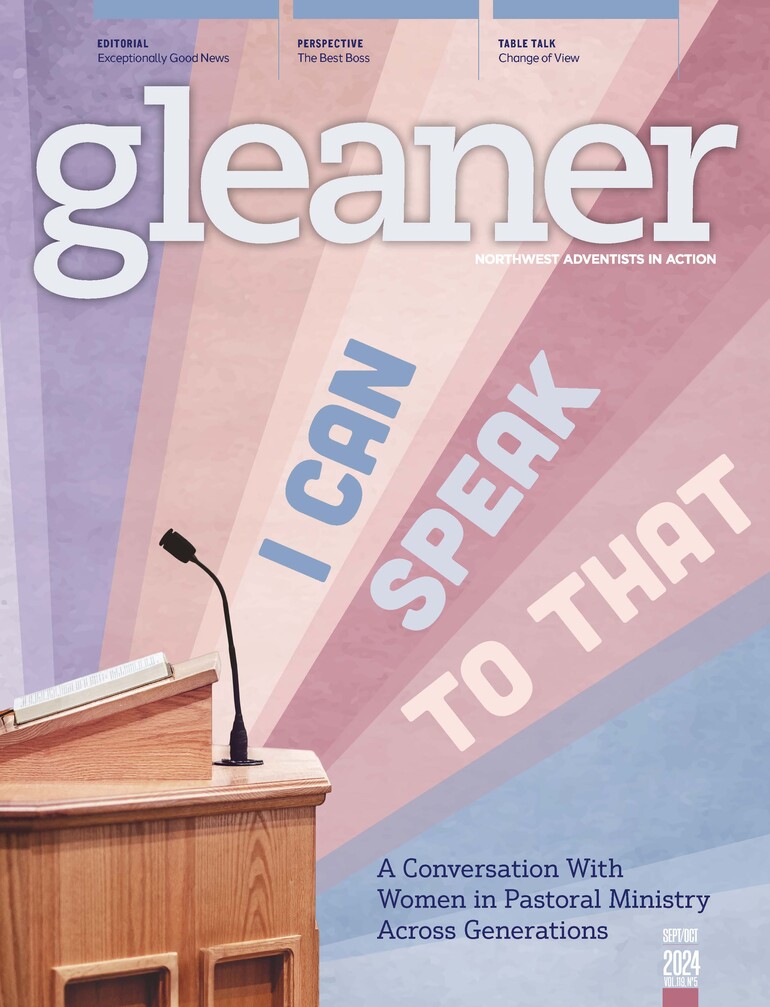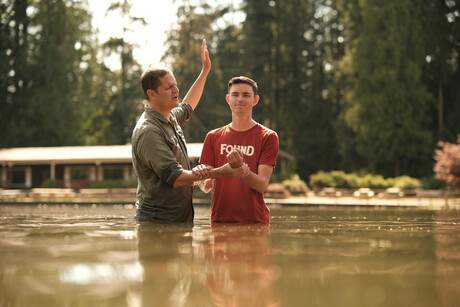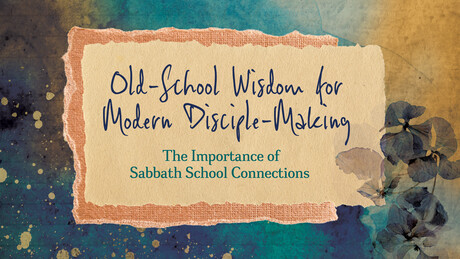The mission of the Seventh-day Adventist Church is to “make disciples of Jesus Christ who live as His loving witnesses and proclaim to all people the everlasting gospel of the Three Angels’ Messages in preparation for His soon return.”1 Due to each person’s uniqueness and individuality in Christ, we need a variety of people — men and women of all generations and walks of life — to carry out that mission.
In the Bible, God’s intent is clear: He created both man and woman in His image. One is not superior to the other. Eve was not formed from the ground like Adam but was instead formed from Adam’s rib. This difference does not promote inequality between the genders but rather introduces the idea from the very beginning that man and woman are to stand side by side as equals.2
Jesus reaffirms this in the gospels by directing people back to God's original plan "from the beginning" (Matt. 19:8). While Jesus didn’t alter the Jewish cultural practices of the time by selecting women to be His immediate disciples, His kindness and respect for women revolutionized the way they were treated and set an example for future generations.
Fundamental Belief 14 of the Seventh-day Adventist Church, Unity in the Body of Christ, says, “In Christ we are a new creation; distinctions of race, culture, learning and nationality, and differences between high and low, rich and poor, male and female, must not be divisive among us. We are all equal in Christ, who by one Spirit has bonded us into one fellowship with Him and with one another; we are to serve and be served without partiality or reservation.”3
According to this fundamental belief, all are equal in the eyes of Christ, and all are called to serve Him — in hospitals, in community service, in pastoral ministry and in third spaces. We need all people, united in the body of Christ, to work together to "Reach One More."
During a time where the roles and rights of women in pastoral ministry within the Adventist Church are being debated, God continues to call women from each generation to serve as pastors. They answer His call and serve Him, focusing on the mission and preparing for His soon return.
How do we provide our women pastors with the support they need to reach one more for Christ? Join us in a conversation with five women in pastoral ministry throughout North Pacific Union as they share their stories, feedback and insights.
Melody Fisher
Generation Z
Walla Walla University
Sophomore theology student
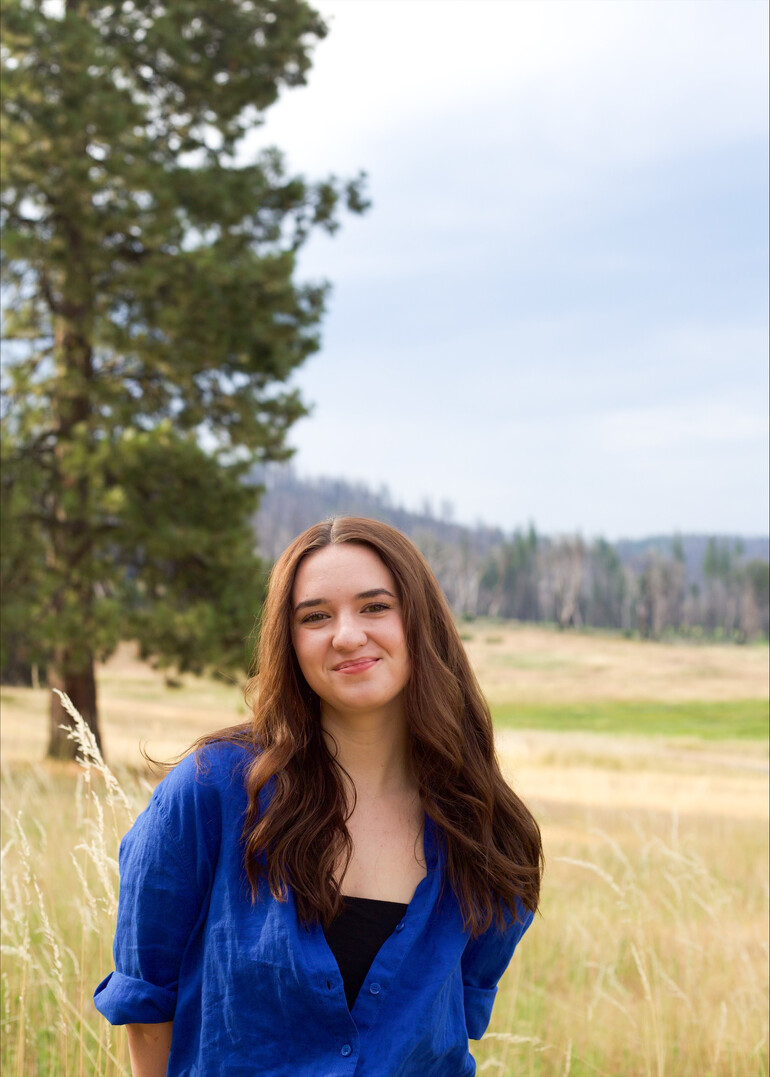
Melody Fisher saw a critical need for intentional ministry to youth and young adults — the generations at the highest risk of leaving the Adventist Church. Feeling called to bridge this gap herself, Fisher decided to start down the path of pastoral ministry at WWU. She enjoys leading out in small group ministries on campus and looks forward to continuing to learn and grow in the Holy Spirit.
Emily Ellis
Generation Z
Oregon Conference
Andrews University Theological Seminary sponsored seminarian
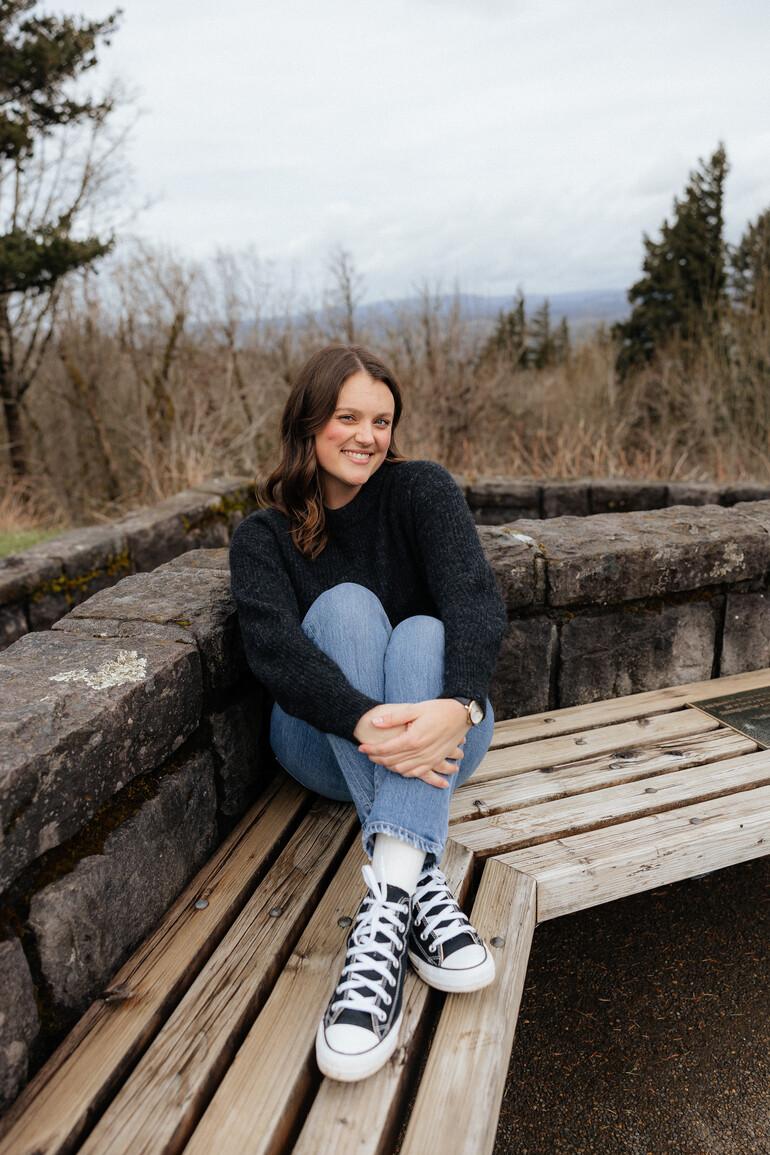
Emily Ellis
Emily Ellis originally set out to become a Bible teacher or chaplain. Her vision changed after discovering a passion for pastoral work while interning at Volunteer Park Adventist Church in Seattle, Washington, and found the church to be a transformative third space in a current culture of extreme loneliness. After serving three years at Pleasant Valley Adventist Church, Oregon Conference sponsored her education at Andrews University Theological Seminary.
Natalie Darisme
Generation Y (Millennial)
Washington Conference
Auburn Adventist Academy Church associate pastor

Natalie Darisme
Natalie Darisme's involvement in ministry began early on in her life, and she later accepted the call to pursue it full-time with the support of her family and the guidance of her mentors. She completed both undergraduate and graduate studies and is now in her ninth year of full-time pastoral ministry. While she feels blessed to have served as a solo and associate pastor, Darisme finds mentoring young people who are interested in pastoral ministry as the most rewarding part of her role.
Belinda Rodriguez
Generation X
Oregon Conference
Hillsboro Spanish Church lead pastor
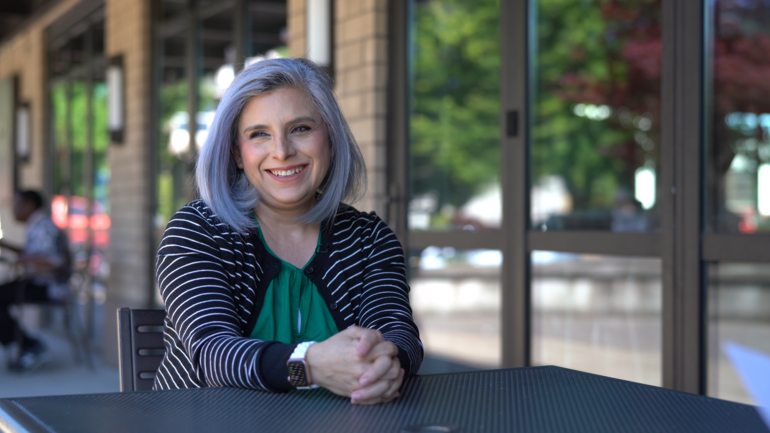
Belinda Rodriguez
Belinda Rodriguez was raised in a missionary family and was exposed to ministry early in life by her physician father and Bible worker mother. Her life was filled with diverse experiences that shaped her spiritual journey and led her to discern God’s calling in her life as a pastor. Rodriguez has now been pastoring for nine years in Hispanic churches across Oregon Conference.
Shirley Allen
Baby Boomer
Oregon Conference
Recently retired pastor

After moving from England to South Africa at age 4, Shirley Allen found herself attending an Adventist school. Despite not being raised in an Adventist family, Allen felt convicted to follow Jesus at age 12, which later led her to accept the call to pastoral ministry. Throughout her years in ministry, she felt convicted to minister to children and advocated for their voices to be heard.
Q: How has your faith evolved since accepting the call of pastoral ministry?
FISHER: I feel my faith has grown greatly. Although I was still excited to minister and share the gospel before, it is different now. Being in positions of service brings me far more joy now than it did before.
DARISME: My personal faith has evolved exponentially since becoming a pastor. I sometimes laugh when I look back on my previous self and see a young woman who was spiritually judgmental and thought she had it all together in her relationship with God. I am so much more compassionate, empathetic, understanding and non-judgmental than before I went down the road of pastoral training. I see people in a way I never would have otherwise.
ALLEN: Now that I have hindsight, I can see how God led me in difficult times. There were times when my faith wavered. Being in a place where God wants you to be doesn’t always make sense at the time, but I have a better perspective now.
ELLIS: Faith is something I’ve held closely since I was a young girl. Something that I try to hold in tension is having a private faith walk and also realizing that as a pastor I have a public role that requires that I constantly share my faith. Private and public faith are going to inevitably be intertwined, but in my mind they should be separated. Part of pastoring is leaning into that tension. You can have the fruit of the secret place spill out to the public place without having to declare it.
North American Division Ministerial Association reported in 20234 that of their 4,000 pastors, 215 were women, and 50% of them were due to retire within the following five years. Their goal was to double the number of women serving in pastoral roles within those same five years.
Q: What are some of the most rewarding aspects of pastoral ministry for you?
ALLEN: When I walk a journey with people, through the birth of children, their joys and sorrows, baptism and the death of loved ones, I form a lifelong bond and connection with them. Those connections are the most rewarding parts of ministry for me.
RODRIGUEZ: I think what's most rewarding is seeing my community grow, witnessing lives be transformed by God’s love and being able to serve and support my congregation. Having a church and members committed to Christ, seeing how the young grow and witnessing how they can love being involved in the church has an unmeasurable value.
DARISME: My favorite moments in ministry tend to be one-on-one moments with people — children, teens, young adults and adults — that most church members will never see or know about. It's rewarding to sit with a crying church member, shed tears with them and watch them go on a healing journey with Jesus. These are often the quietest moments of ministry when only a few people are present. They don't take place on a stage, they aren't included in a sermon and they aren't live-streamed or part of the Sabbath morning program, yet they are some of the biggest moments where I see Jesus move. They are another huge reason I stick with this job. Seeing lives touched and changed by Jesus is beautiful!
As of August 2024, NAD has 3,909 pastors, 165 of whom are women.
Of those 165, 17 are serving at NPUC churches.
Q: How does your family support your ministry, and how do you balance family life with pastoral responsibilities?
ALLEN: My husband, Dave, has always been my biggest supporter and encourager. I am retired now, and my adult children and grandchildren live far away, but we communicate regularly. We are currently in South Africa visiting with them.
RODRIGUEZ: My husband is also a pastor; he has been incredibly supportive of everything I do. My two kids, Ashley and Abdiel, are also very supportive. I feel very lucky. My oldest, Ashley, is in her fourth year of college to pursue ministry. At home, there have been some adjustments with schedules, food and home duties that we all share, and each person does their part at home so meals and chores still happen with their help.
ELLIS: I come from such a wonderful family. When I first decided that I wanted to be a pastor, I think there was some hesitation at first — and understandably so. However, they have shown up for me in so many wonderful ways in the years that have since passed, such as driving across the state to hear me preach or bonding with my church congregation. I also think that the beauty of church is that family is expanded beyond blood. Who I am today has been shaped by my biological family and my church family.
DARISME: I could not do what I do without the support of my family. I am lucky to have a spouse who is also a trained pastor who understands the nuances, difficulties and unique pressures of this job and who serves as an invaluable support at home. His love and prayers have been a direct reflection of Jesus for me and have held me up in very dark moments in ministry. My family is my first church, and my relationships with them are not something I will sacrifice. Jesus has deeply convicted me of the importance of maintaining a healthy marriage and family, and I think that is the first and most beautiful reflection of Him that I can have.
Q: What advice would you give to women aspiring to become pastors?
ALLEN: Be open to the voice of the Holy Spirit in small decisions and the bigger decisions will follow.
ELLIS: I would say strive to seek the beauty in ministry while, at the same time, knowing and understanding the cost of ministry. I also think it’s important to understand that pastoral ministry is an honor and a privilege, not a right. None of us deserve to be able to serve in the capacity of the pastor, least of all me.
FISHER: I would advise any woman who feels called to pastoral ministry to rely very heavily on their faith. People may doubt or disagree with you, but your calling is between you and God.
DARISME: Develop grit and walk into ministry with eyes wide open. Pastoring requires a great deal of empathy, skills in conflict management, good communication, letting go of any judgments you may have and willingness to work with and minister to all types of people seeing them with the eyes of Jesus. Take the time to read, ask for advice and humble yourself before God. Reach out to a current female pastor for mentorship and unashamedly follow whatever God has put on your heart. Remember ministry isn't all about you, it's all about Jesus.
RODRIGUEZ: I would emphasize and recognize that God has a calling for all of us in our lives. When that calling comes to you, don’t doubt His calling. He is the one who will guide you. Accepting means there will be challenges, but it is also a great privilege. The road may seem difficult, and some may try to shut you out, but please don’t be afraid to reach out to someone and trust the Lord, for He calls and provides. God always provides.
Approximately 1 in every 23 NAD pastors is a woman.
Approximately 1 in every 17 NPUC pastors is a woman.
Q: Who are the mentors that have been instrumental in your journey?
ALLEN: My greatest mentor and closest friend is my husband, Dave. He always included me in ministry opportunities whenever appropriate. My teachers were instrumental to my journey; I still keep in touch with those remaining. Working with Sherri Uhrig in children’s ministry was a great joy and blessing; I learned so much from her. I have also been very blessed to have special friends and mentors in South Africa and the U.S.
FISHER: I had a couple of really good youth pastors and religion teachers in middle school and academy who really played a crucial role in my journey. They were role models for me and I aspire to be that inspiration for other young people.
RODRIGUEZ: Having the support and mentorship of Samuel Castro, David Paczka, Dan Linrud and Kara Johnsson has been significant in my pastoral journey. They have provided support during hard times, led by example, encouraged me and shown personal care for myself, my family and my ministry, which have been invaluable.
Q: How has your theological education influenced your approach to ministry?
ELLIS: I am forever grateful for the theological education I received at WWU. The professors there all deeply shaped me both inside and outside of the classroom. They were all extremely present and deeply cared about us as students and made a point to invest in us outside of the classroom. Now that I’m in seminary, the importance of education for pastoral ministry has only been solidified. The education I’ve received here has been enriching as I’ve interacted with students from around the world, people who think differently than me and professors who have high value for theology.
FISHER: I feel that the small portion of my education that I’ve completed so far has given me more confidence in my calling. It’s taught me that although I don’t know everything, I’m growing and learning and I can still be a light and a minister in that process.
DARISME: My theological training has helped me see a bird's-eye view of the Adventist Church and even the deep longing and search for a religion that has meaning in one's life that we find evident across cultures worldwide. This helps me when I narrow down into a specific ministry situation that may be challenging because I can see how it fits into the overall puzzle of what Jesus is trying to accomplish on this earth. Each of the classes I took has in some way shaped a part of my ministry. I have been blessed to have some great professors at both WWU and in seminary.
Q: How can the broader Adventist community better support female pastors and their ministries?
FISHER: The broader Adventist community can better support women in ministry through greater prayer. Any pastor, minister or leader needs prayer as they are spreading the gospel.
ELLIS: The church that I had the opportunity to pastor at for three years knew how to support pastors well. They were such joy-filled people and they wanted me to be part of their lives. That was such a gift; I could just feel their love and support. It oozed out of them! If you want to support your female pastors, follow their example.
ALLEN: The broader Adventist community can support female pastors by being open to hiring them to pastor their church.
DARISME: Supporting pastors starts with the attitude of your heart. Begin by humbling yourself before God and giving over to Him any preconceived ideas you have about women in ministry. Honestly face up to your own biases, prejudices and foundational presuppositions, and examine them with Jesus. Allow the voices of women in pastoral ministry to be heard, allow us the freedom to operate in all ministry spheres, respect our professional advice and advocate on behalf of your female pastors to local church, conference and union leadership.
RODRIGUEZ: Uplift your female pastors and leaders, celebrate and encourage their achievements to show your support.
Join the conversation — we want to hear from you!
How did these perspectives inspire you to evaluate your viewpoint on the role of gender and how it relates to pastoral ministry within the church?
What steps can you take to foster an environment in your church where women feel valued and empowered to serve as pastors?
Email us at talk@nwadventists.com.
Every person was created uniquely by Christ and has a point of view shaped by their own individual experiences. Through listening and respectfully dialoging with others, we can learn perspectives that differ from our own and can enrich our understanding.
In this conversation with five women in different phases of pastoral ministry throughout NPUC, we see a range of generations, experiences and feedback. Just as they add unique perspectives to the conversations they are part of, they also add value to each ministry sphere they are serving in.
The Adventist Church echoes this sentiment in Fundamental Belief 14. We are all parts of the body of Christ; we each have a unique purpose, perspective and spiritual gift to bring to the table (1 Cor. 12:12–27). To have a complete body in Christ, we need all people to be united for His purpose. We cannot cast off parts we don’t think we need and still complete the mission of the Adventist Church. We are all needed to reach one more for Christ.
God continues to call women to serve Him as pastors in the Adventist Church. He knows that each one is an integral part of enacting the mission — to make disciples of all people and prepare the world for His soon return. Who are we to question whom He is calling?
“You are only human, and human beings have no right to question God. An object should not ask the person who made it, ‘Why did you make me like this?’ The potter can make anything he wants to make. He can use the same clay to make one thing for special use and another thing for daily use” (Rom. 9:20–21).
Just as God speaks to your heart, asking you to follow Him, He also speaks to the hearts of women around the world to minister for Him. Who are we to challenge Him on that?
As the authority and responsibilities of women in pastoral positions continue to be divisive topics within the Adventist Church, take a moment to acknowledge your own biases and beliefs. Reexamine what you believe.
Pray for God’s guidance as you deconstruct and rebuild your perspective, taking into account these new, diverse generational perspectives from women in various phases of pastoral ministry.
Respectfully dialogue with others. Refrain from being combative and closed off. Instead, be kind and curious as you listen with an open heart.
Ask yourself what God is putting on your heart. Reflect on the new information you have gathered. Consider these new perspectives and start reconstructing your thoughts on this important topic.
It is through these moments with God, respectful dialogues with others and times of self-reflection that our faith and connection to Christ grow.
References:
- “Mission Statement of the Seventh-Day Adventist Church,” Seventh-Day Adventist Church General Conference, accessed July 23, 2024, https://gc.adventist.org/official-statements/mission-statement-of-the-seventh-day-adventist-church/.
- Ellen G. White, Patriarchs and Prophets (Washington, D.C.: Review and Herald Publishing Association, 1890), 46.2.
- “28 Fundamental Beliefs,” Seventh-Day Adventist Church, accessed July 23, 2024, https://adventist.org/wp-content/uploads/2020/06/ADV-28Beliefs2020.pdf.
- “Women Clergy,” NAD Ministerial, accessed August 8, 2024, nadministerial.com/womenclergy.





